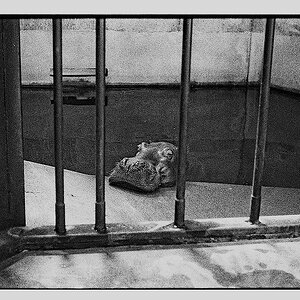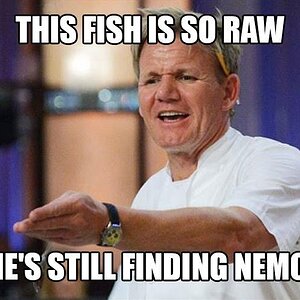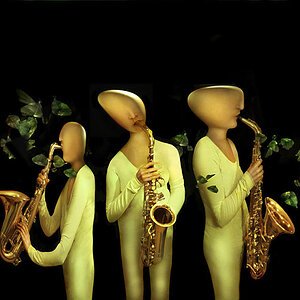bribrius
Been spending a lot of time on here!
- Joined
- Jan 12, 2014
- Messages
- 8,709
- Reaction score
- 1,311
- Can others edit my Photos
- Photos NOT OK to edit
The universe is eternal? Do you believe that? I have trouble believing that. Put it on a smaller scale. The ant comes upon a rock. Ant could suppose the rock was always there.....The universe may in fact be eternal, but we may not be able to understand this anymore than a ant can understand orbital physics. When scientists try to determine why certain constants have the values that they do, they often come to the conclusion that the specific properties are rather arbitrary. However, these values are tuned in such a way that they make matter possible, and for us to be able to exist. Some see in this the hand of God. Others hypothesize that the "big bang" that created our universe is actually a bubble in a much larger space, where spontaneous generation of universes is an on-going process, with each created universe having a arbitrary set of basic properties. In most of those universes, the physical laws are different from ours, and in most life as we understand it would not be possible. So the fact that WE exist may be a cosmic coincidence where all the physical properties coalesced to values which would allow life as we know it. Personally, I have a hard time understanding how multiple universes could exist, but then my intellect has a hard time understanding time as the fourth dimension. Yet physicists have conceptualized universes with many more dimensions than four, and if that is in fact possible, then it's quite possible that the other dimensions are connected to the ones we perceive in ways that our minds cannot understand (yet). Sorry, Buckster, haven't yet watched your posted lecture. Planning to do that while I'm resting my tired body after doing some yard work which I'm going to start in a few minutes. It may have already answered some of the questions I'm asking.
Any matter (could just be my take on it) i figure started somewhere, and eventually gets traced back to a beginning from nothing.








![[No title]](/data/xfmg/thumbnail/37/37094-a3c300cd42f78d01d01fe80c1233002e.jpg?1619737881)

![[No title]](/data/xfmg/thumbnail/33/33906-2f9b24e4b1e1be07f68257916df0f2b3.jpg?1619736208)





